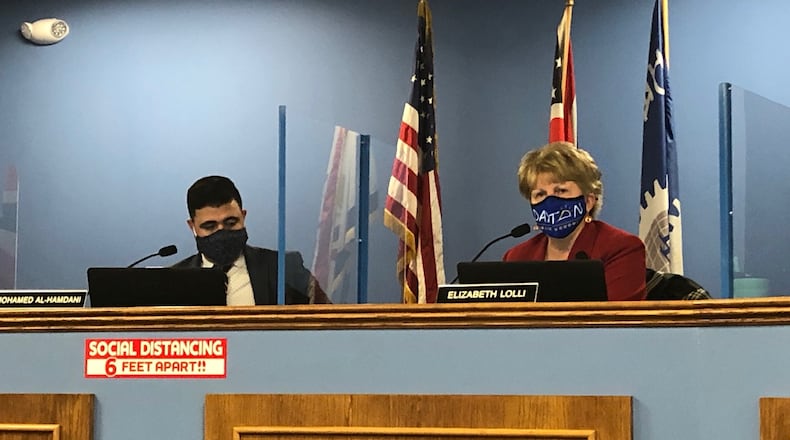It also changed how public comments are handled. Instead of someone simply stepping up to a microphone to voice their views on a matter before elected officials, many governments required comments to be emailed before the meeting so they could be read aloud by officials.
Jack Greiner, a Cincinnati attorney who specializes in media law, said he’s not aware of any particular governments that have faced a backlash over the way they conducted meetings during the pandemic, though some likely faced technological issues.
“On the upside, the technology in some respects opens up the process in a way that permits more public participation,” he said. “It will be interesting to see what happens going forward.”
Ohio’s open meetings law requires public bodies to meet in-person in a public setting. Ohio lawmakers last year passed a law suspending those rules during Gov. Mike DeWine’s COVID-19 emergency declaration. That law expires on July 1.
The temporary rules allow virtual meetings. They still require public notice of meetings. Public bodies must provide public access to virtual or electronic meetings. That access can be provided by livestreaming, local radio or TV broadcast, or other electronic means.
Dayton Public Schools last week returned to in-person meetings.
“If we require our students and staff to come back to work, it seems we should do what we’re preaching,” said DPS board President Mohamed Al-Hamdani.
They are wearing masks, spacing out members of the audience and have glass partitions between board members on the dais. The school board streamed meetings online before the pandemic, but it added ways to watch over the past year, like on Facebook, and will likely continue doing that, Hamdani said.
During virtual meetings, they asked people to email public comments before the meetings and they read them aloud.
“It’s a good idea to listen to the public to get a pulse of what’s going on in the district, what’s going on in the community, how people are feeling,” Al-Hamdani said.
Other governments meeting in-person include Greene County commissioners, Beavercreek, Miamisburg and West Carrollton.
Some local governments have faced scrutiny in recent years over transparency relating to their meetings. The Lakota Local School District in Butler County has been sued by a former parent claiming the school board doesn’t properly provide notice or maintain records of meetings.
School district officials say their attorneys are reviewing the allegations.
A judge last year ruled that the Bellbrook-Sugarcreek school board violated open meetings laws in 2018 and 2019 by going into improper closed executive sessions and deliberating via text and email.
In conjunction with Sunshine Week this week — a week noting the importance of government transparency — Ohio Attorney General Dave Yost updated the Ohio Sunshine Manual.
The manual explains Ohio’s open meetings and public records laws in layman’s terms so all Ohioans can have the tools to hold their government accountable. The manual can be downloaded for free at www.ohioattorneygeneral.gov/Sunshine.
“Secrecy in any relationship destroys trust — a friendship, a marriage or a business partnership. Transparency builds trust,” Yost said in a statement along with the updated manual. “More now than ever, we in government need to build trust with those we serve. It starts with openness in public decision-making and the records that document it.”
Staff writers Jeremy Kelley, Bonnie Meibers, India Duke and Eric Schwartzberg contributed to this report.
About the Author

